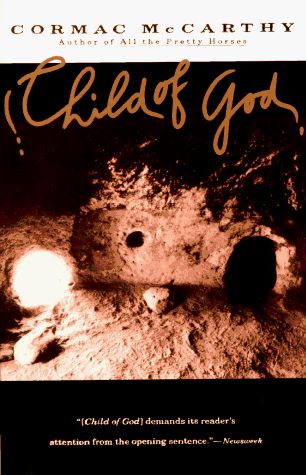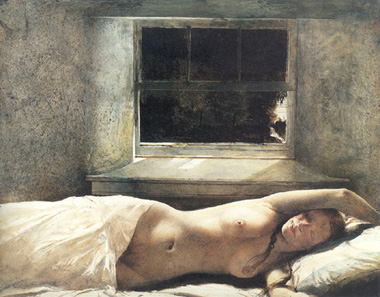
In Greek drama, acts of violence or sex were “ob skena” and had to take place off stage. Thus, the horrific violence of Oedipus gouging out his eyes is not shown, but rather reported by a messenger. We see the same tradition in Shakespeare, of course, as well as the modern novel. And while many writers elide scenes too taboo or offensive to the sensibilities of the general reading public, books like Ulysses, Lolita, and Tropic of Capricorn, demonstrate that novels are often the site of debate over what can and cannot be shown or described or articulated plainly in our culture. Our concept of “the obscene” (the Greek “ob skena” simply translates to “off stage”) demands that certain actions might only be referred to or implied, but not graphically depicted, that the offensive action takes place out of our vision. The great lie or paradox of the obscene then is that in pushing the offensive action off stage, the author necessitates that the audience must envision that very action that was removed, that they must articulate their own understanding or schema or representation of what is taboo. While this strategy can often be quite effective and affecting (think of Tarantino pulling the camera away as Mr. Blonde cuts off the cop’s ear in Reservoir Dogs), in a character-centered novel it can also lead to a larger denial, a larger exclusion. What if one’s whole life was obscene? In his third novel, Child of God, Cormac McCarthy tells the story of a man who has been pushed from life’s stage, who exists in the uncanny and indigent margins of society.
The ersatz protagonist of Child of God, Lester Ballard, is a poor, stooped, abject wretch of a man. The book opens with Ballard losing his house in a humiliating debacle. From there, he wanders the earth, finding an abandoned shack and barely eking out the means to leave. Ballard is an outsider, literally, always looking in at the lives of more normal, more stable people. His voyeurism leads him to creep up to parked cars to spy on the lovers inside. Wanting some connection or sense of love–or perhaps just out of general dejected weirdness–he masturbates against the cars, watching the people inside. His identity as voyeur is magnified in his only apparent skill. Ballard is an ace sharpshooter who carries his rifle almost everywhere he goes, surreptitiously spying on the normal folks through its lethal scope.

As the book develops in McCarthy’s spare, terse prose, Ballard becomes more and more unhinged. Everywhere he goes he is slighted or outright rejected and cheated by his fellow man. The indignities and affronts against Ballard range from being falsely accused of rape to simply being ignored by his neighbors. At the same time, Ballard is a creep, a loser, and seems largely deserving of this treatment. And yet, as McCarthy points out early in the novel, he is a “child of God, much like yourself perhaps.” This early call to identify with Ballard as a fellow human being is constantly strained by his wildly antisocial behavior, and yet it’s McCarthy’s genius as a writer that anchors the novel in some measure of sympathy for such a wretched anti-hero. When a young girl rejects Ballard’s advances, she taunts him, saying, “You ain’t even a man. You’re just a crazy thing.” In many ways, this is the major question of the novel: Is Ballard a man, or a thing? What makes a person a person, and not simply an object estranged from the human race? To test this question, McCarthy has Ballard plumb almost every conceivable taboo, from murder to arson to necrophilia. However, Ballard isn’t the only one in these Tennessee backwoods who behaves despicably: there’s the father who rapes his daughter, the gangster behavior of the Ku Klux Klan, and the mob justice of the townspeople as a whole. Still, Ballard’s descent into violence and madness–graphically portrayed by McCarthy–is the central action in this compelling novel.
Readers looking for redemptive story arcs or tales of heroism will likely be turned off by Child of God, and squeamish readers will probably not get past the first fifty pages. Those interested in McCarthy’s fiction will find more in common here with the visceral grit of The Road or Blood Meridian than the reflective romanticism of his “Border Trilogy” novels (including crowd pleaser All the Pretty Horses). Child of God is in many ways a response to the Gothicisms of Carson McCullers and William Faulkner, and certainly bears favorable comparison to those writers’ works. And like those writers’ works, McCarthy’s novel has its challengers–just as recently as 2007 an English teacher found himself in quite a bit of trouble for loaning the book to a student. Those who see the book as obscene are perhaps right, in the sense that the word implies “that which must be shown off stage.” However, one of the legal definitions of obscenity necessitates that the work “lacks serious literary, artistic, political or scientific value,” a claim that I do not think can be seriously substantiated against Child of God. Don’t believe me? Read it for yourself.

I didn’t want to make Bolaño’s *2666* the focus of my review of *Child of God*, but I do want to point out that I specifically read it right after *2666* because I was afraid that most other writers/novels would pale next to Bolaño’s masterpiece. *Child of God* was too visceral and gross and immediate to get completely lost under the weight of *2666*, so I’d say it was an effective strategy, one I actually employed after reading McCarthy’s *Blood Meridian* about a year ago. After *Blood Meridian*, I found myself for a few months unable to really appreciate anything else. I think its weight completely obliterated any of the substance of Chris Adrian’s *Gob’s Grief*, which I believe I read shortly after *Blood Meridian* (here’s my review: https://biblioklept.org/2008/05/20/gobs-grief/). Anyway. If there’s a lesson here it’s this: Cormac McCarthy is the perfect chaser for *2666*.
LikeLike
[…] 15. Child of God – Cormac McCarthy […]
LikeLike
[…] Cormac McCarthy’s Child of God is scary, obscene, etc. […]
LikeLike
[…] Here is my review of McCarthy’s novel Child of God. […]
LikeLike
You mention denial and exclusion of the events of Lester Ballard’s life and their effect on the reader, I have to mention how my heart sank when the phrase ‘other female victims’ appeared at the end of part 2. Only one murder had been explicitly described up until this point, and it’s a testiment to the writing that you’re still ‘rooting’ for such a vile human being, after that event.
LikeLike
Also, my wife read it with hardly a word or comment. With Franco film’s adaptation, the word ‘ necrophilia’ has come up a few times in the press, so I was quick to ask ‘wife, this book is about necrophilia?’
‘Yeah, there’s some of that in there’
Which of course led me to pick it up as fast as possible. Which leads me to the next point, I wish I hadn’t known this detail before I started. You kind of wait for it to happen, and in doing so may miss some of the humor and beauty of the opening section.
You mentioned it as a follow up to 2666. I used it as a warm up for The Bleeding Edge, since I’ve read nothing but comics and graphic novels for almost 2 years after finishing Moby Dick
LikeLike
Very nice post. I certainly love this site.
Stick with it!
LikeLike